24 February 2023
Awning vs. Casement Windows: What's the Difference?


Both awning and casement windows are windows that crank out. With extendable crank handles, they work well in spaces where double hung or slider windows are tough to reach. Crank-out windows fit perfectly in many rooms and have advantages over other windows.
Awning vs. Casement Window Differences
The difference between casement versus awning windows is the location of the hinge. Casement windows have a hinge on the side and are typically taller than they are wide. Awning windows have a top hinge and are typically wider than they are tall. Below is a casement window.
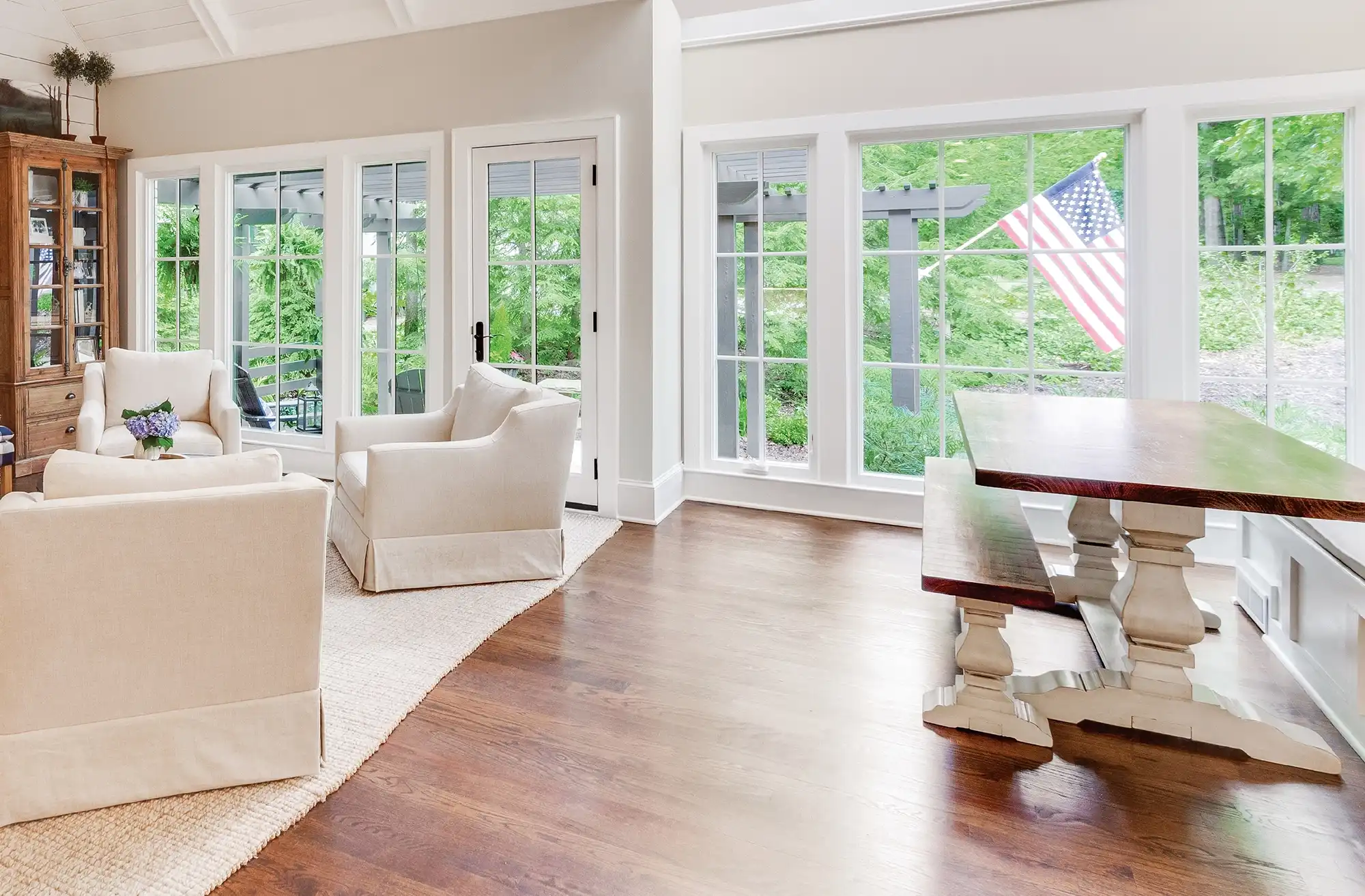
Benefits of Casement Windows
Uninterrupted views: Casement windows provide an uninterrupted view from inside your home, unlike double or single hung windows that feature a checkrail. The extra glass area offers the opportunity for more natural light to enter a room.
Ventilation: With casement windows you have the flexibility to open the window completely or just a little bit to achieve the right amount of ventilation.
Easy cleaning: Marvin Replacement Casement windows make cleaning simpler with our Easy Wash® hinge. The hinge allows you to easily clean both the inside and outside of your window from inside your home.
Optional Clear View® Hinge: Our casement windows can come with our Clear View® Hinge, which positions the hinge closer to the frame for a clearer view. The Clear View® Hinge creates a wider opening, which can help meet egress requirements, and add more ventilation.
Multi-point locking system: Our casement windows lock securely at multiple points to provide security, plus they seal against air leakages, and guard against any moisture infiltration.
Casement Window Cons
Open outward: Casement windows swing open toward the outside of a home so they need proper clearance to operate smoothly. It's a good idea to trim back any shrubs and make sure a walkway is clear if you want the windows to open completely.
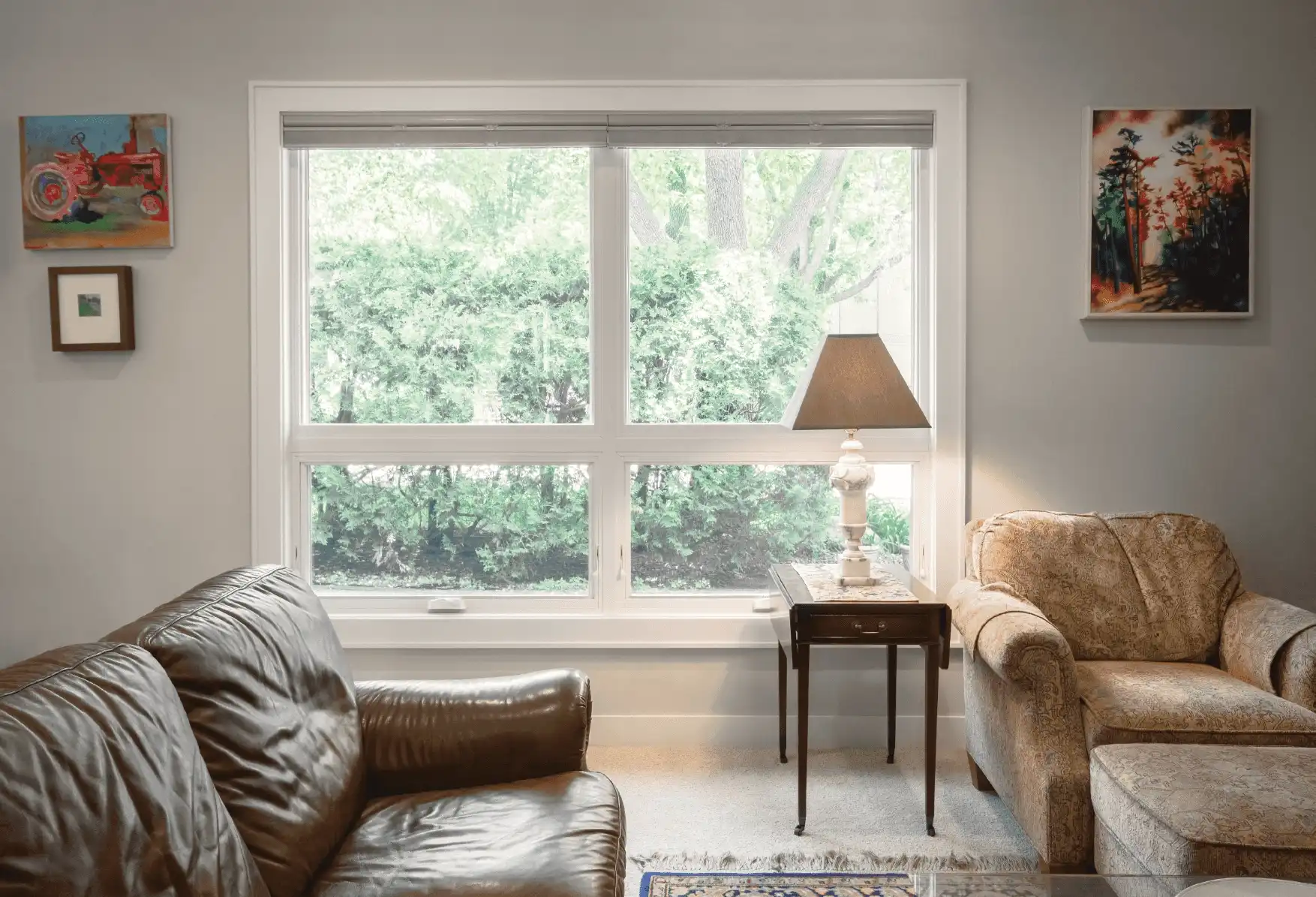
Awning Window Pros
Clear views: Like casement windows, awning windows don’t have a rail that can obstruct a view.
Pair well with other windows: Awning windows pair well with a picture window or a round top window above them for expanded views.
Can fit in small areas: Awning windows fit well above kitchen sinks and in bathrooms.
Ventilation: Since awning windows swing out, it’s possible to keep them slightly open, even in light rain, to allow cool air and fresh rain smells to waft through the house.
Awning Window Cons
Need exterior space: Awning windows need room to swing out.
Exterior glass cleaning: Awning window exterior glass may need cleaning from the outside of your home because it’s difficult to reach the exterior glass from inside the home.
May not meet egress requirements: Awning windows may not provide large enough openings to serve as egress windows.
How to Choose Between Casement and Awning Windows?
Choosing between casement and awning windows can come down to location. The location where you want the window installed matters. A wider area will suit an awning window better than a casement. A narrow area will suit a casement window better than an awning window.
Both windows swing out and need enough room outside to operate. They also work in hard-to-reach spaces because a crank handle extends out for easier operation.
Are Awning Windows More Energy Efficient Than Casement Windows?
Awning and casement windows have similar energy efficiency. Both seal tightly with a latch lock, and have low air infiltration ratings. The tight seal prevents air leakage better than other windows because there are fewer areas for air to penetrate.
Marvin Replacement Casement and Awning windows come with double pane glass and an argon gas fill for energy efficiency. Plus, there are four glass coatings available to help retain solar heat or reject solar heat, depending on your climate.
Ventilation + Air Circulation
Casement and awning windows are some of the best windows to improve air circulation in your home. They can use the entire width of the window, or the entire height of the window and don’t have overlapping sash. Since they operate with a crank handle, you can determine how far you want to open them for ventilation.
FAQs
Can a casement window be an egress window?
Casement windows work well for egress because they can provide a wide enough clearance and a tall enough opening for an emergency exit.
Awning windows typically can’t be used for egress because they don’t provide a large enough opening for egress requirements.
Homes need egress windows for emergency exits and must meet local building code. Municipalities have standards for size and the number of egress windows a home needs. It’s best to check with your building official to see if your windows meet egress codes.
Do awning windows and casement windows have screens?
Yes, awning and casement windows have screens. Awning and casement windows have screens on the interior side of the home and remove easily. We offer our standard Marvin Bright View™ fiberglass mesh screen and our Hi-Transparency fiberglass mesh screen. Both screens are durable aluminum-surround screens to provide a sturdy defense against insects. Both screens provide a clear view outside but our Hi-Transparency screen has a crisper view.
Looking for Casement or Awning Windows?
If it’s time for you to replace your windows or update them, consider Marvin Replacement windows for your home. Get started and schedule a design consultation.
Back to All Articles
You May Also Like
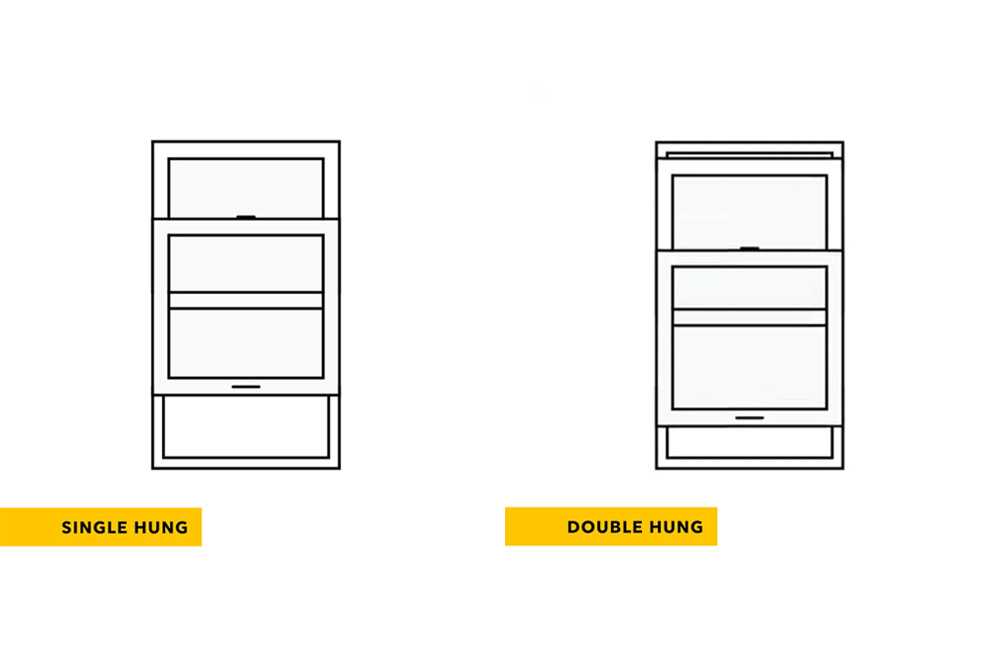
Double Hung Windows vs. Single Hung
Curious what makes a double hung window different from a single hung window? Or want to know why you'd want a double hung window vs. a single hung? Learn more about the differences to find the right one for your home.
Double Hung Windows vs. Single Hung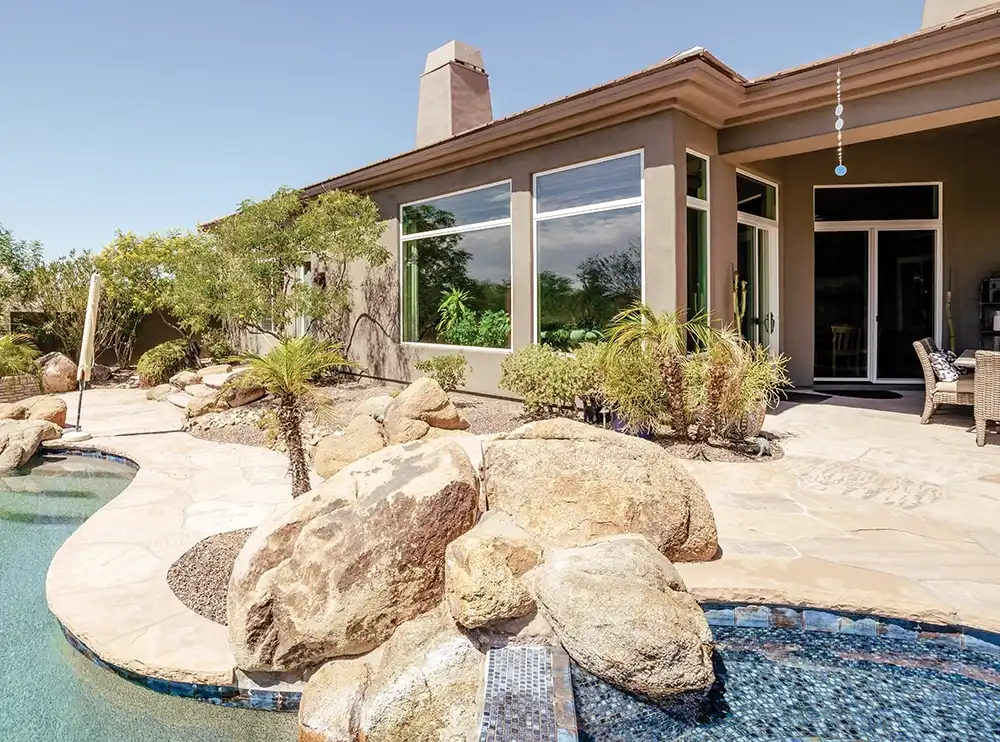
What is a Picture Window?
Many windows get considered picture windows or get confused with other types of windows. Discover what a picture window is and the different shapes one can come in.
What is a Picture Window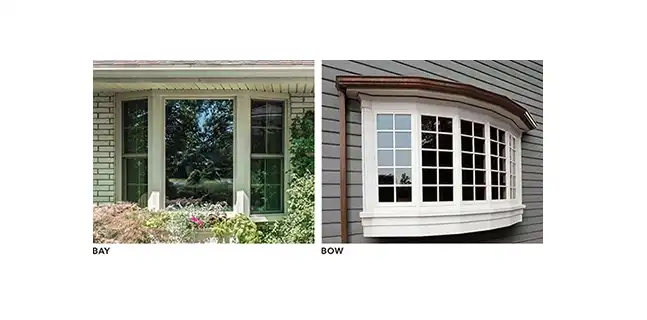
Bay vs. Bow Windows: What's the Difference?
Not sure what the difference is between a bay window and a bow window? Both provide big views for your home but they do so differently. Find out the difference between a bay window vs a bow window.
Bay vs Bow Windows